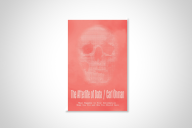You have /5 articles left.
Sign up for a free account or log in.
The "vulgarity debate" that broke out among Persian bloggers in late 2003 (discussed in my last column) has no exact parallel in the American scene. But as Henry Farrell pointed out last week, some of the same tensions can be felt along the borders where blogging intersects with established professions and institutions of journalism and scholarship. And no surprise, either: While Iranian academics and writers were initially provoked by the bad grammar and guesswork spelling that prevailed in Weblogestan, the deeper issue is structural - a divide that cuts through any culture.
In his paper for American Anthropologist, Alireza Doostdar makes a brilliant (and neatly executed) leap from the terms of the vulgarity debate to Pierre Bourdieu's critique of Kant's distinction between "pure" and "vulgar" taste. "A vulgar work," as Doostdar paraphrases the argument, "is that which is facile and fools the senses into submission instead of provoking one to think about deeper meanings." The ability to "rise" from the sensuous to the conceptual is a function of education. And that, in turn, makes distaste for "the vulgar" one of the automatic dispositions -- in Bourdieu's lingo, the "habitus" -- of those who have accumulated a certain degree of economic, social, and cultural power.
I hesitate to provide even this much of a summary of the argument. Not because it's too complicated, but because it can be too easily -- vulgarly, even -- converted into an apology for boilerplate populist resentment, whether against "the media elite" or "tenured radicals" or "bourgeois intellectuals" (depending on the ranter's preferred mode of denunciation).
Providing tools for lazy polemicists was never Bourdieu's point, in any case. (For a good overview of the connection between his anti-elitist politics and his intellectual project, check out this recent article by Loic Wacquant.) It would be interesting to know what Bourdieu himself, who died more than three years ago, might have made of Weblogestan. But my impression is that Doostdar's analysis of the Iranian "vulgarity debate" is very much in his spirit. "If I had one 'activist' intention in writing this paper," he said in an e-mail message recently, "it would have to be alerting the 'intellectualists' [by which he means Iranian academics and journalists] of the fact that they are being blind to the power dimensions of their own discourse."
Doostdar notes that, while the high tide has receded, the vulgarity debate keeps washing over the Iranian blogosphere. "Time and again," he told me, "the same issues are raised again in different contexts, and within new discussions. Most recently, someone wrote a long essay on how paying too much attention to the 'statistics meter' affects one's writing, suggesting that the writing on many blogs was cheap because of this obsession with 'hits.' "
And the ferocity of the initial dispute was the product of another tendency that isn't limited to Persian Weblogestan: "The very fact that bloggers need to be 'provocative' in order to be read," says Doostdar, "has an important bearing on the intensity of the debates among them" -- including the arguments over how they understand the blogosphere itself.
In the course of his paper, Doostdar makes one analytic move -- a reference to the work of Soviet cultural theorist Mikhail Bakhtin - that (I'm guessing) won't stir up a lot of controversy among much of anybody. Instapundit won't denounce him for it. Atrios won't start an open thread inviting people to discuss the consequences for Social Security. And the literary bloggers won't quit complaining about The New York Times Book Review long enough to notice. So be it. But Doostdar offers a striking idea whose implications are worth pondering.
In short, he contends that blogging is best understood as what Bakhtin called a "speech genre" -- one of the basic terms in his heroic and open-ended project of rethinking the relationships among life, language, and literature. The idea could be applied to blogging anywhere in the world. But it's hard not to notice how much richer the historical subtext becomes when the scene is Iran. To appreciate the resonances, it may help to have some background, so let's digress from Doostdar's paper for just a moment.
The Soviet literary scholars who first rediscovered Bakhtin's work in the 1950s and '60s tended to read him as a critic of the Communist regime -- a fair enough judgment, given that he wrote about Dostoevsky (never a favorite of Marxist critics) and Rabelais (whose celebrations of joyous and messy excess were deeply antiauthoritarian in spirit). Those early admirers also assumed that Bakhtin himself was dead. He had published just a few works under his own name between the 1920s and 1940s. So it was entirely reasonable to guess that he been killed -- as likely as not, in state custody -- somewhere along the way.
It turned out, however, that Bakhtin was actually teaching at Mordvinian State University in Saransk. In effect, Russia's greatest cultural theorist was working at Boondocks A&M -- a situation preferable to most of the alternatives available at the time. By the time he died in 1975, his writings were the basis of a school of cultural theory that, while officially tolerated, was radically at odds with any ideology claiming to offer the final word.
The definitive Bakhtinian notion is dialogue. As he told a prominent Soviet magazine in 1970: "A meaning only reveals its depths once it has encountered and come into contact with another meaning: they engage in a kind of dialogue, which surmounts the closedness and one-sidedness of these particular meanings, these cultures.... Such a dialogic encounter of two cultures does not result in merging or mixing. Each retains its own unity and open totality, but they are mutually enriched."
Maybe that sounds like standard contemporary multi-culti diversity-speak. But saying it took real guts -- and the implications of Bakhtin's argument are by no means merely therapeutic.
He says that meaning exists only in dialogue. Every sentence is, at least implicitly, the answer to someone else's sentence -- which was, in turn, a reply to another's utterance, etc. The greatest works of literature (and Bakhtin was the sort of theorist who could use a term like "the greatest works of literature" without the slightest hesitation) were the ones that never stopped producing meaning.
It is not that we foist new meanings on Shakespeare, he told that Soviet magazine in 1970. "He has grown because of that which actually has been and continues to be found in his works, but which neither he himself nor his contemporaries could consciously perceive and evaluate in the context of the culture of their epoch."
So what does any of this have to do with blogging? Well, a posthumous anthology of Bakhtin's work appearing in Moscow in 1979 contained an essay called "The Problem of Speech Genres" (now available in English) that had been composed during the academic year 1952-53. A Soviet reader did not need a footnote to catch the echo contained in that date. As Bakhtin drafted it, Stalin had been secretly preparing a fresh round of purges (happily interrupted by his death, late in the spring semester.)
Unlike the Iranian academics and journalists expressing contempt for the "vulgarity" of blogger discourse, Bakhtin offered an account of culture that didn't draw hard and fast lines between "high" and "low" forms. Just as there are genres of classical literature (tragedy, comedy, epic and so forth), so there are genres of expression and dialogue in ordinary life.
"Each sphere in which language is used develops its own relatively stable types of these utterances," wrote Bakhtin. In a sense, your routine exchange with the barista at the coffee shop in the morning is just as formalized, in its way, as the number of syllables in a haiku. While Bakhtin coins the term "speech genre," he does not restrict its application to spoken language. A business letter or newspaper article is an example of a speech genre.
Of course, some speech genres are fairly simple, and some are extraordinarily complex. Bakhtin emphasizes that the complexity of a speech genre is not a matter of how difficult its content may be. Rather, some genres are more open to dialogue than others. They can mimic or borrow from other genres, or suspend their own de facto rules. For Bakhtin, the unique power of the novel as a literary form comes from its virtually infinite capacity to absorb and transform the entire universe of speech genres.
The blog entry, then, is a what Bakhtin would consider a complex speech genre, at least potentially. (Less so than Dostoevsky; more so than spam.) "Each individual comes to a blog with a stock of speech genres at her disposal," writes Doostdar. Some of the "vulgar" forms of expression in Weblogestan are the written approximations of familiar practices of oral communication. "The frequent use of ellipses in many Persian language blogs and comments is part of an attempt to compensate for [the] uprooting of the genre from its oral context, by simulating gaps in oral speech that work as cues for turn-switching, as when a speaker remains silent when it is his interlocutor's turn to speak."
Add to that the capacity to link to, or otherwise incorporate, an incredible array of online content -- and to engage in dialogue with other people -- and blogging starts to seem very Bakhtinian indeed. Not that he would have expected much of it to achieve exactly Shakespearean greatness, of course. As he wrote in 1970, " Everything that belongs only to the present dies along with the present."
Now, for a long time there was a tendency to read Bakhtin's concepts as a more or less disguised plea for pluralism, liberalism and sundry other anti-totalitarian virtues. That is understandable, but maybe not quite up to dealing with just how complicated his situation and his ideas actually were.
I tried to address some of this in a review-essay, a few years back. Suffice it to note that the problems are far knottier than I let on - and that it might be a good idea for Western enthusiasts to be skeptical of any reading of Bakhtin that makes him sound like a prophet of sweetness and light.
In any case, we should be all the more dubious about assuming that the speech-genre of blogging itself is somehow intrinsically open, anti-dogmatic and emancipatory. The desire to do that is especially strong in regard to Persian Weblogestan, of course. It is certainly the impression you get from most journalistic accounts in the American media. But an unpublished paper by Alireza Doostdar -- a careful analysis of an Iranian blog called Munkarat ("forbidden actions") -- raises some issues that go far beyond the debate over "the vulgar spirit of blogging."
Munkarat is a religious blog whose title, notes Doostdar, will remind readers of a passage from the Koran - as well as the "morality police force set up shortly after the Islamic Revolution in Iran in 1979." The commentator who runs the site is a social critic, of a kind, devoted to "express[ing] his personal beliefs" about the "ugliness" of contemporary Iranian society. He also posts a large number of devotional entries honoring the Prophet, the Ayatollahs, and those who were martyred during the war with
Iraq in the 1980s.
Reading Doostdar's paper after a long visit with Bakhtin's work, it is striking to see how much the "open" speech genre of blogging can absorb from Iran's fundamentalist culture - in particular, the hey'at and
the Student Basji Organization.
A hey'at is an unofficial but regularly structured congregation of men who assemble (often at a member's home) to perform religious observances. With its streaming audio of prayers and its blogroll of others
sharing the owner's beliefs, [ital]Munkarat[ital] creates a kind of online community of piety.
As for the Basji ("mobilization'), it is "one of a handful of major student organizations in Iran, with offices in most, if not all, universities in the country," with close ties to conservative political and religious forces. One of its basic activities is maintaining a bulletin board to inform the campus of the group's views.
"As a member of an organization like the Student Basji," writes Doostdar, "an interested student may collect newspaper and magazine clippings for the bulletin board, write political commentaries, participate in discussions about organizational policy vis-a-vis school issues or problems related to the wider society, mediate discussions in meetings and seminars, or help organize events." All of which, in effect, continues online -- with the blogosphere offering a bulletin board large enough to be seen by anyone who reads Persian.
The owner of Munkarat, writes Doostdar, sees his blog as part of "the 'arena' or 'battlefield' where cultural wars (and in the larger scheme of things, political, economic and military wars) are fought between the
forces of the Revolution ... and the forces of the 'enemies.' "
In a sense, he is perfectly correct to see it that way. Weblogestan, whatever else it may be, is the scene of endless conflict. For my part, I am cheering for the people who go into the Munkarat commentary fields to gripe about its piety and to demand a secular and democratic society.
It sounds like quite a few of them do get rather vulgar about it. But sometimes you have to expect that sort of thing.








